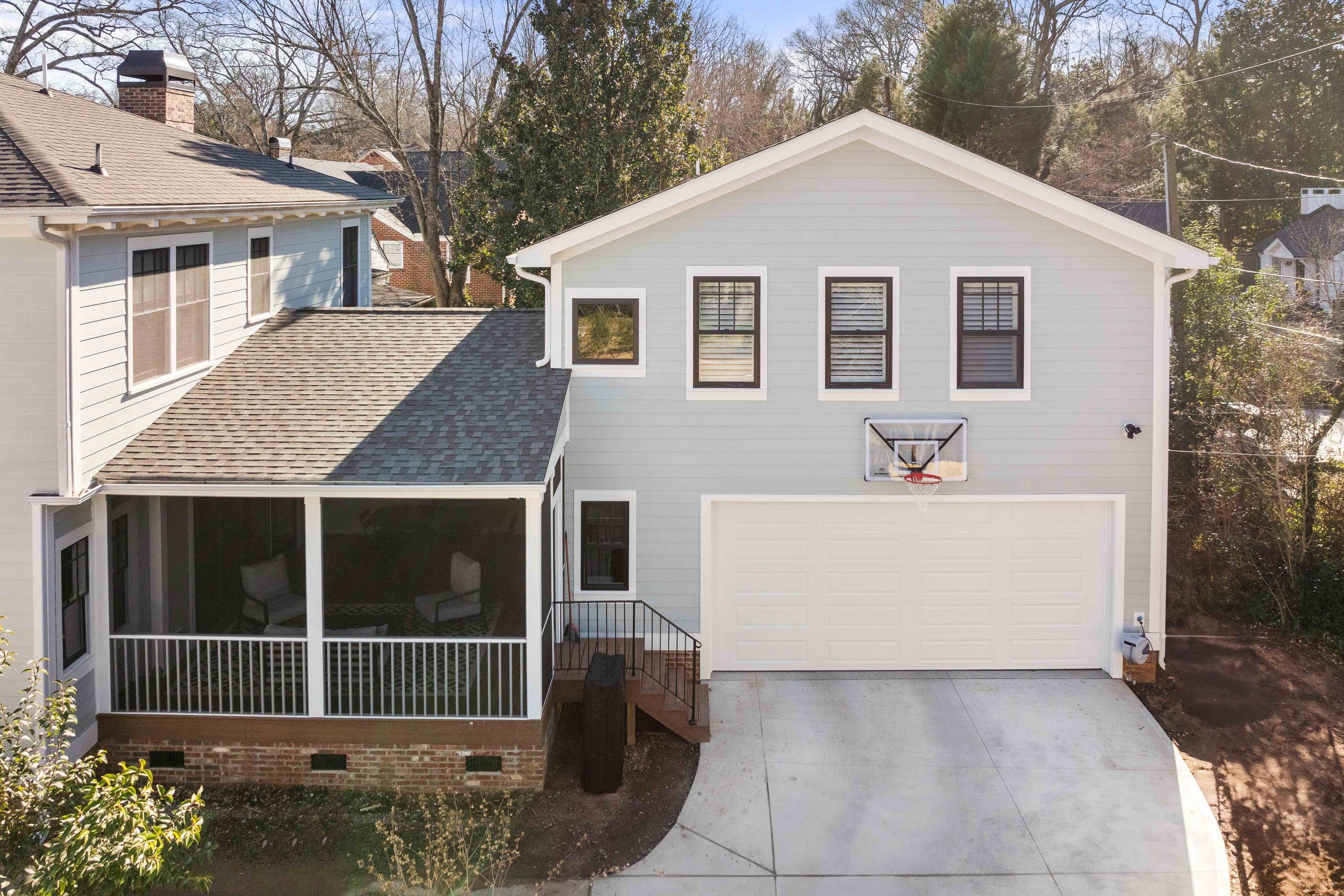Is a Home Addition Right for Me?
Should I renovate, or should I move? With the growth of Greenville and the surrounding Upstate, the rising value of homes, and the state of interest rates, more and more people are considering a home addition as a great option to get the space they need without uprooting their lives. But before you commit to a major renovation like a home addition, there are a few important factors to evaluate to ensure it's the right decision for you and your household.
1. Your Stage of Life
Your current phase of life plays a huge role in whether a home addition makes sense. Are you a growing family in need of more bedrooms or play space? An empty nester looking to add a hobby room or sunroom? Do you foresee a family member or parents potentially needing a place to live? Or perhaps you're planning to age in place and want to add a first-floor bedroom or accessible bathroom. A home addition is a significant investment, so you need to think long-term—will this addition serve your needs five or ten years down the road?
2. Tie-In Complexity
One of the most overlooked aspects of a home addition is how it will connect to your existing structure. The tie-in can significantly impact both the project's cost and feasibility. For example, will it require modifying your roofline, foundation, or relocating major utilities (HVAC unit, electrical panel, gas meter)? Complex tie-ins often lead to higher construction costs and longer timelines, so understanding the structural implications is critical.
Pro tip: If you're considering an addition and interviewing contractors, make sure the contractor looks at all the exterior implications of tying into the home at the first walkthrough.
3. What's Going Inside the Space
The function of your new space directly affects the budget and construction needs. A simple bedroom or office may be relatively straightforward, but a kitchen, bathroom, porch, or some combination of these comes with more complexity—think plumbing, electrical, HVAC, along with all the fixtures and finishes involved. Define your goals clearly and work with a designer or contractor who can help bring that vision to life realistically.
4. The "Not Fun but Necessary" Costs
Permits, zoning restrictions, utility upgrades, and even temporary living arrangements during construction are all real costs that need to be accounted for when planning for a renovation. Make sure to build a buffer into your budget for these hidden costs. A good rule of thumb is to set aside at least 10–20% of your total budget for contingencies.
Pro tip: Ask the contractor if any system upgrades—HVAC, plumbing, or electrical—will be needed during the project. While it will add costs, neglecting to address these systems will lead to overtaxing, poor performance, or expensive repairs down the road.
Conclusion
If you live in Greenville, SC or the surrounding Upstate, a home addition can transform how you live in your home—but it's not a decision to take lightly. By carefully considering your life stage, the complexity of connecting to your current home, the purpose of the space, and all the hidden costs, you'll be better equipped to make an informed, confident choice.


